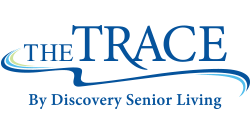When your aging loved one resides in an assisted living community in Covington, LA, and has been diagnosed with scoliosis, understanding how to navigate the condition is crucial. Scoliosis, a spinal curvature, poses unique challenges, especially for older adults. This article aims to provide insights into managing scoliosis in elderly individuals, ensuring they receive the best possible care and support in assisted living.
Understanding Scoliosis in Older Adults
Scoliosis in elderly adults can significantly impact their quality of life, leading to discomfort, pain, and mobility issues. As individuals age, the condition can worsen or even develop as degenerative scoliosis, linked to the wear and tear of spinal discs and joints. Recognizing the symptoms and understanding the condition are the first steps toward providing the right support for your loved one.
It is essential to stay informed about the latest treatment options and care practices to ensure your family member’s well-being. Assisted living communities in Covington, LA, equipped to handle such specialized care needs, can offer a comfortable environment for older adults with scoliosis.
The Importance of Early Detection and Regular Monitoring
Early detection of scoliosis in older adults can lead to more effective management of the condition. Regular check-ups and consultations with healthcare professionals are vital in monitoring the progression of the spinal curvature. In an assisted living setting, team members can facilitate these appointments, ensuring your loved one receives timely medical attention.
Regular monitoring helps in adjusting care plans and interventions based on the progression of scoliosis. This proactive approach ensures that older adults receive personalized care, minimizing discomfort and enhancing their quality of life.
Tailoring Care to Meet Individual Needs
Every individual with scoliosis has unique care requirements, making personalized care plans essential. In Covington, LA, assisted living communities should work closely with healthcare providers to develop and implement care strategies that address the specific needs of residents with scoliosis.
Senior activities and therapies tailored to your family member’s abilities and health status can help maintain their mobility and comfort. Physical therapy, gentle exercise programs, and appropriate pain management strategies are key components of a comprehensive care plan for older adults with scoliosis.
Creating a Comfortable Living Environment
Ensuring a comfortable living environment is crucial for older adults with scoliosis. Assisted living communities can make necessary adjustments to the living spaces, including ergonomic furniture and supportive bedding, to alleviate pain and support proper posture.
Modifications in the living environment can significantly enhance comfort and mobility, enabling your loved one to engage in daily activities with greater ease. These adjustments, coupled with compassionate care, contribute to a higher quality of life for residents with scoliosis.
Supporting Mental and Emotional Well-being
The impact of scoliosis extends beyond physical discomfort, affecting mental and emotional health. Assisted living communities should offer support services, such as counseling and social activities, to promote emotional well-being and reduce feelings of isolation or anxiety associated with the condition.
Encouraging participation in community events and fostering a sense of belonging can uplift the spirits of older adults with scoliosis. It is important to create an inclusive environment where your loved one feels supported and valued, despite their physical limitations.
Empowering Through Education and Advocacy
Educating yourself and your elderly loved one about scoliosis can empower you both in managing the condition effectively. Knowledge about the nature of scoliosis, potential complications, and available treatment options enables families to make informed decisions about care.
Advocating for your family member’s needs within the assisted living community ensures they receive the attention and services necessary for managing scoliosis. Open communication with community team members and healthcare providers is key to coordinating care and advocating for the best possible outcomes.
Leveraging Community Resources for Comprehensive Support
Accessing community resources can significantly enhance the support system for your elderly loved one with scoliosis. Covington, LA, offers a variety of services, including support groups, rehabilitation centers, and educational workshops that can provide additional guidance and assistance. These resources not only aid in the physical management of scoliosis but also offer emotional support and community connection.
By leveraging these external resources, families can ensure a well-rounded approach to care, encompassing all aspects of their loved one’s health and well-being. Engaging with the broader community fosters a network of support that enriches the lives of older adults with scoliosis, empowering them to live more comfortably and confidently.Top of Form
Proactive Care Management is Important
Navigating scoliosis in elderly residents of Covington, LA, assisted living requires understanding, compassion, and proactive care management. Recognizing the unique challenges posed by scoliosis in older adults and tailoring care to meet their individual needs can significantly enhance their quality of life.
By ensuring a comfortable living environment, supporting mental and emotional well-being, and empowering families through education and advocacy, you can provide your loved one with the care and support they deserve. Remember, with the right approach, older adults with scoliosis can lead comfortable and fulfilling lives in their golden years.







